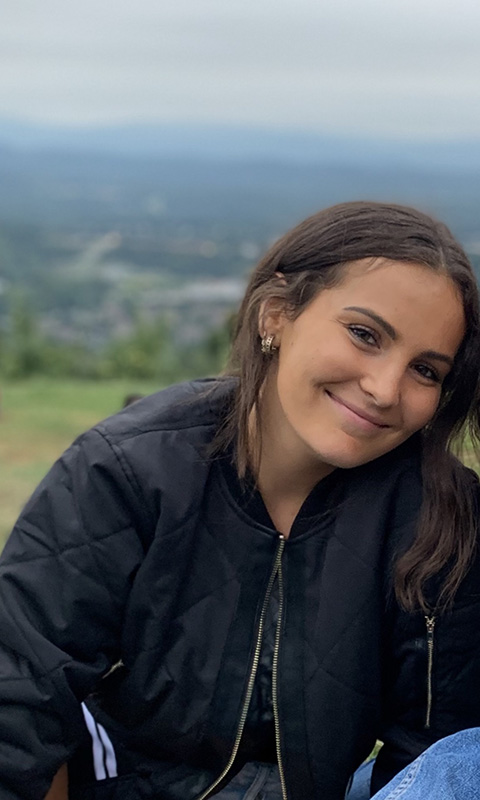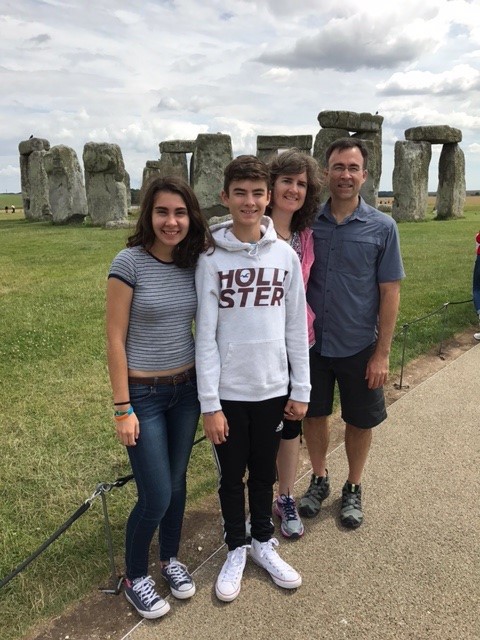Karina Atkins was enrolled in the global internship program for this summer with Sama, a resource group for women and health, in New Delhi, India. In preparation for the internship, she even enrolled in a South Asian history class during the spring semester. As the pandemic unfolded in the U.S. and in India, she followed the development closely and was disappointed, but not surprised when her internship program was cancelled.
As the cancellations followed for different global internships scheduled for the summer, Ingrid Hakala, director of global internships didn’t give up. Instead, she reached out to her partners, who would host students in different countries. With their partnership, she launched an experimental virtual global internship program for UVA students. The project started in May with fourteen students and partners in four different countries – India, Morocco, Peru and Thailand.
“Virtual work can be challenging on so many levels, even for seasoned professionals and otherwise well-managed organizations,” says Hakala. “Cross-cultural work is also inherently challenging, as it requires contextual sensitivity, self-reflexivity, and continual learning. I knew the participants in the virtual global internship program would be engaging in an experience that would demand much of them as burgeoning professionals.”
But the students were enthusiastic. When Atkins, heard from Hakala that SEWA Bharat, a non-governmental organization in India was accepting remote interns, she decided to give it a try drawn by their grassroots approach to advocating for women's economic, political, and social advancement.
“Virtual internships are an uncharted territory and I was nervous about how a virtual global internship would play out, given the time difference and potentially different office cultures and expectations in the US and India,” said Atkins. But she adds, the time difference has not been an issue.
“One of the most important things I’ve learned from having a remote internship is that it requires us to manage time well,” said Atkins. “Although I discuss projects and ideas with my coordinator, it is my responsibility to decide how to complete my tasks.”
Collaborating Virtually and Internationally
In her virtual internship with a NGO in Morocco, Wolf is trying to create a logic frame for a grant proposal for a Legal Aid Clinic, which provides pro bono legal aid counsel and capacity building programs for women and youth, including migrants and asylum seekers, as well as civil society organizations. In addition, she I also working on a social media campaign and blog post regarding the importance of forests, and efforts to protect them. “I’ve also started working on creating a new design for HAF’s donate webpage.”
Hakala mentioned that most of the students are working with non-profits on projects related to labor, diversity, organizing, healthcare, and many other critical fields, and the resonances with matters being brought to the public fore in the US are powerful. The fact that this program allows students to be “grounded” in their home context while working alongside individuals abroad on a daily basis has created an unexpectedly fertile learning space for appreciating local connections and global themes.
Wolf also adds having open conversations in her internship means she can talk about what is unfolding in the US in this moment. “I’ve really appreciated that our supervisors have made it clear that we don’t need to compartmentalize these efforts, or block out the situation and the events happening in the United States, while working on projects for HAF,” said Wolf.
As her courses moved online during the spring, Hannah Hardiman decided on a virtual global internship for the summer because she “wanted to still be able to engage in work in a global context.”
She is working on a long-term research project at SEWA-Bharat. “SEWA is a trade union, but also relies on external funding for a lot of their work,” says Hardiman. “It forces them into becoming outcome oriented as opposed to rights-based because many external funds are outcome oriented.”
Paromita Sen oversees the internships at SEWA-Bharat and was instrumental in working with Hakala on the UVA global virtual internship programs. Sen’s ties with UVA go back many years, as Sen recalls her time as a PhD student at UVA. She completed doctorate with John Echeverri-Gent in the Politics department in 2018.
With the internships going online, Sen also had to be creative and flexible to provide meaningful experience to the students. “Earlier the students had to be physically in Delhi and work with one team,” said Sen. “But when the internships became online, they can suddenly work with multiple teams across India.”
All in a Day’s (Remote) Work
Given the virtual work, UVA students and their supervisors are finding ways to stay in touch and discuss work on a regular basis. Sometimes, those interactions happen over a zoom or phone call, other times, it takes the form of a google document, whatapp messaging or an excel worksheet.
Sen meets Atkins regularly over Zoom meetings, but she is also trying to create a venue where interns can talk to each other and find value in their work. “We have interns from around the world participating in summer internships at SEWA. We want to start dialogue among them, so they can find common interests,” said Sen.
Talking to students, in this moment in time, has also helped Sen see SEWA in a larger perspective and recognize that there may be many different ways to support their work.“Everyone does not have to be in the same place to contribute to a cause.”
Atkins is hoping to produce a record of thoughts and experiences that can facilitate robust discussions about organizing in the post-COVID world and planning to take Hindi in the fall semester.
“In some ways, it is fortunate that students are able to experience this critical time in the US while also being asked to extend their understandings of structural inequalities and cultural biases to another context abroad through their internships,” says Hakala.






